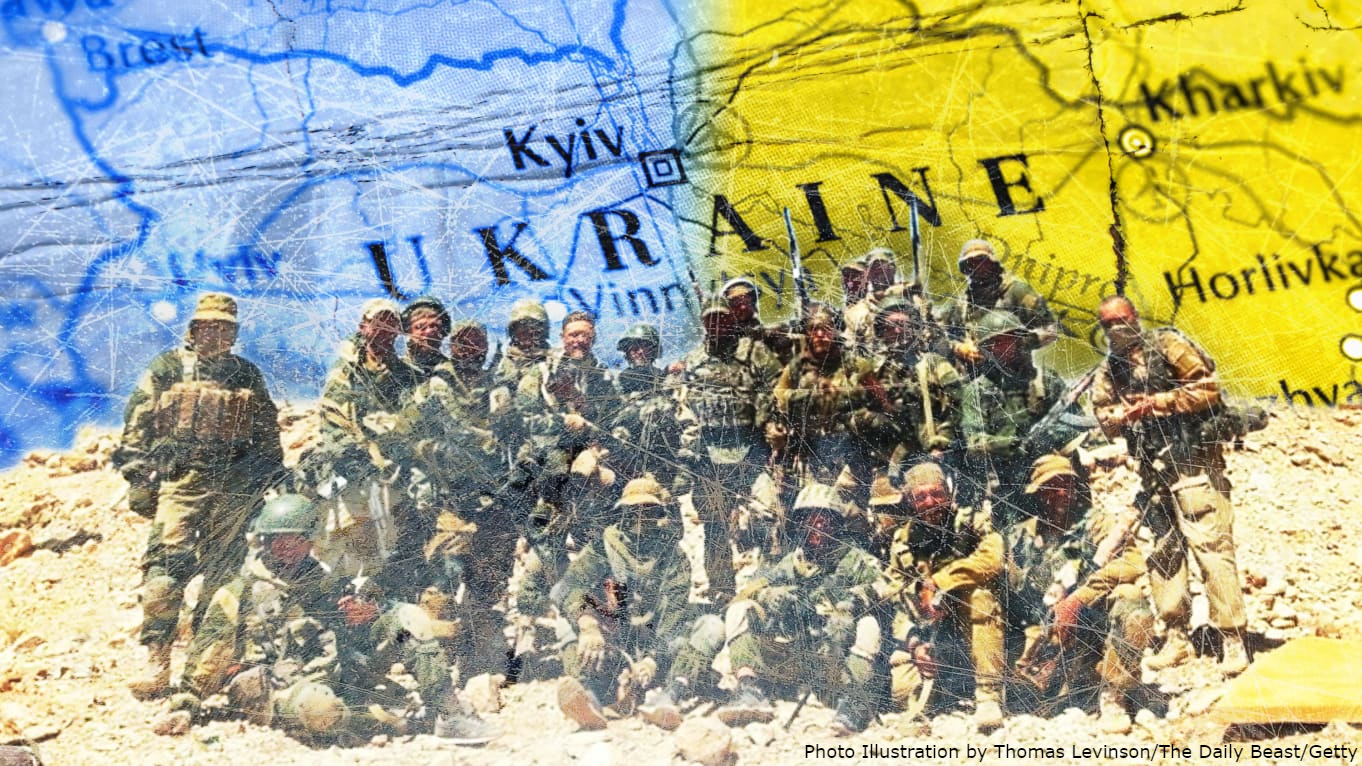An expert from Burkina Faso calls on the international community to support democratic forces in African countries where the Wagner Group operates
Experts called on the international community to take action to bring the Russian Wagner Group to justice and support democratic forces in African countries where the Wagnerites operate.
Such statements have been made at the international conference “Crimea Global. Understanding Ukraine through the South”.
During the conference, the coordinator of the Media Initiative for Human Rights Tatiana Katrychenko provided an interim report on the activities of the Wagner Group during Russia’s full-scale invasion of Ukraine. She gave examples of war crimes committed by mercenaries of the Wagner Group, not only against the Ukrainian military but also against civilians.
Katrychenko stressed that the Ukrainian law enforcement agencies have direct evidence the Wagner group tortured prisoners and killed them with particular cruelty, including by beheading. She pointed out that Russia fully supports and funds this paramilitary group.

Participants of the discussion panel pointed out that the Wagner Group has committed war crimes in Ukraine, Syria, and Africa.
Mazen Darwish, a human rights lawyer and representative of the Syrian Centre for Media and Freedom of Expression, noted that the Wagner militants openly identify as Russians. He also spoke about the crimes against civilians in Syria during Russia’s invasion, when Wagnerites massacred and tortured civilians in Aleppo in an attempt not only to inflict military defeat but also to cause internal displacement.
Darwish stressed that Russia denies any allegations of crimes committed by the Wagner Group, ignores pre-trial investigation initiated against the Wagner Group, and spreads propaganda that portrays the Wagnerites as peacekeepers and freedom fighters.
Paul Koalaga, a founder and executive director of the Institute for Strategy and International Relations (ISRI) from Burkina Faso, highlighted the Wagner Group’s activities in Africa. Koalaga noted that in Africa, Wagner’s supporters are engaged in commercial activities, not just military ones, and are trying to take control of enterprises and entire industries.
 Mazen Darwish
Mazen DarwishKoalaga explained that Russia is using the unstable situation in the region to support criminal regimes that do not want elections, as they understand that they will not be able to retain power. Russia promotes its own threatening image in these countries to deter countries such as France, which are considered colonisers. At the same time, Russia is pursuing a colonising policy towards countries in the African region, grabbing their natural resources without considering itself a coloniser.
Koalaga stressed the need to overcome Russian propaganda in the region and recommended that democratic forces pay more attention to creating independent think tanks and media in the African region to provide wider coverage of the activities and issues of corrupt regimes.
Dr. Sorcha MacLeod, a human rights researcher who participated in developing the Montreux Document and the International Code of Conduct for Private Security Service Providers, explained the problem of the legal status of the Wagnerites.
According to Dr. MacLeod, the Wagnerites could be classified as mercenaries under the Geneva Conventions due to their involvement in the Russian-Ukrainian war, which is recognized as a conflict between two states. Moreover, mercenarism may be defined differently in the national legislation of different states than in the Conventions. At the same time, the Wagnerites can be considered a proxy force in countries where the conflict looks internal. Russia uses them as proxy forces precisely to avoid responsibility for its actions.
Dr MacLeod also said that the motivation to fight for Wagner mercenaries is not only the pay but also the ideas of neo-Nazism and Russia’s expansion into other countries. The Wagner Group recruits people with combat experience and those without. They recruit former prisoners and people from the temporarily occupied part of Ukraine and war-torn territories elsewhere.
Maksym Tymochko from the Legal Department of the Ministry of Defence of Ukraine explained that according to the Geneva Conventions, the Wagnerites can be considered combatants, as they are controlled by the Russian armed forces in the Russian-Ukrainian war.
 Maksym Tymochko
Maksym TymochkoRussian president Vladimir Putin has publicly admitted that the Russian state financed the Wagner Group during the war with Ukraine. However, since the Wagnerites receive unofficial financial support from the Russian state budget, and the Wagner Group is not defined in Russian law, they can be considered mercenaries. According to international conventions, they are mercenaries when they organise coups d’état in African countries because they are not citizens of these countries, and these coups are not wars in which Russia is officially involved.
At the same time, as Tymochko stressed, the Wagnerites can also be prosecuted as terrorists who have been repeatedly involved in terrorist acts and other crimes.
According to Tymochko, the Ukrainian government’s practice recognises Wagnerites as combatants in order to exchange them with Russia as prisoners of war. In parallel with the exchange process, war crimes investigations are being conducted into the Wagnerites and Ukraine is bringing them to justice.
Tymochko concludes that the Wagnerites are a de facto network of organised groups operating worldwide in the interests of the Russian state’s aggressive hybrid policy.








